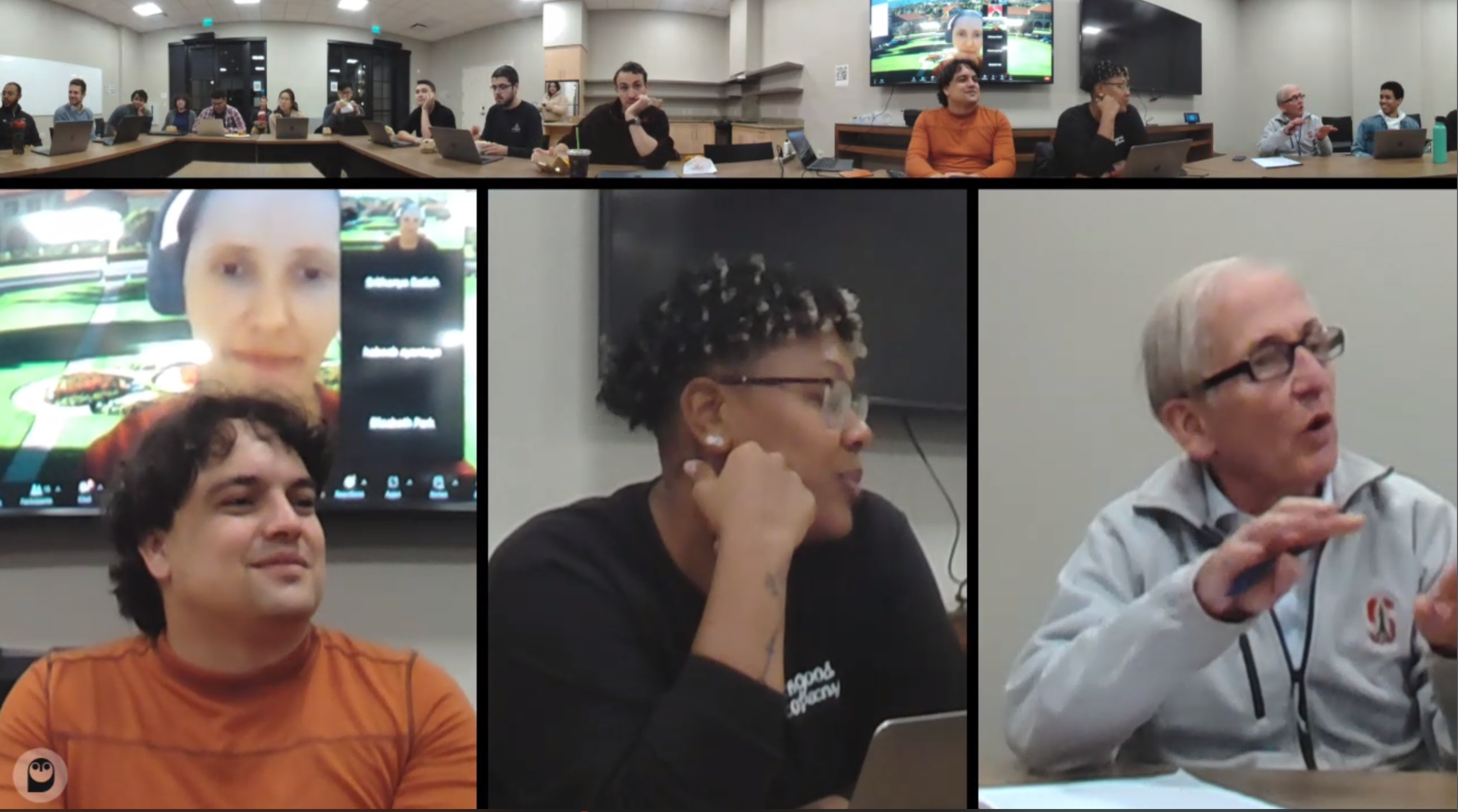University President Richard Saller joined the Graduate Student Council (GSC) Tuesday to address concerns around campus discourse about the ongoing Israel-Gaza war, as well as increasing tuition rates.
Fireside chat with Saller
Saller invited the GSC to ask him about any issues, prefacing with an explanation of his responsibilities and the Provost’s separate management of budget, capital planning and academic activities.
Kristen Jackson, a fourth-year Ph.D. student in education and out-going GSC co-chair, brought up academic freedom and the funding of research topics, specifically around the GSC’s particular goal of fossil fuel divestment. Saller referenced the Kalven Report, a University of Chicago report advocating institutional neutrality on public issues, and expressed overall support for academic freedom.
“I am very much a proponent of the idea that we need to have an open forum for debate and I would hope that it would be respectful and based on research, not just voicing opinions,” Saller said. “That, of course, is coming to the floor in a very painful way right now, not with fossil fuels so much as with the war in Israel and Gaza.”
Saller also iterated that his role as president for an interim term was to ensure “continuity” to the best of his ability — including the progression of the fossil fuel committee, created by former President Marc Tessier-Lavigne, which reviews fossil fuel company-funded research projects.
Calling himself a free speech advocate, Saller said speech that is unprotected would have to entail a threat of physical violence against a particular individual along with a realistic possibility of carrying out the threat, per the Leonard Law.
Saller said he is currently meeting with both pro-Palestine and pro-Israel groups, though he will not issue a statement endorsing one side or the other of the war.
“What we’re trying to do is first of all protect the safety of the community and secondly, express sympathy with the very real pain that both sides are feeling because of the violence,” Saller said. “Statements from the University are not going to settle the war, unfortunately.”
According to Saller, Stanford has hired an outside, neutral counsel to investigate Ameer Hasan Loggins, a COLLEGE 101 lecturer who was suspended due to reports of identity-based targeting of Jewish and Israeli students in October. The investigative council spoke with Loggins and students from the class. Saller declined to share any details of the investigation while it is ongoing.
Emmit Pert, fourth-year chemistry Ph.D. student and incoming co-chair of GSC, reintroduced a 2008 Stanford proposal of wanting to significantly increase enrollment. Councilors also raised concerns about rising tuition rates.
“We charge hefty tuition, but we also give half of it back in the form of scholarships,” Saller said.
“In the wake of the Supreme Court decision on affirmative action … the more immediate issue is what we’re going to commit in financial resources to try to … maintain a diverse undergraduate student body.” The effects of the affirmative action decision will be felt throughout undergraduate, graduate admissions and graduate fellowships, Saller said.
Saller also attributed the increase in tuition to the increase in scale of University resources. He noted that they have committed a lot of resources to student counseling and mental health as well as for legal and safety precautions.
“We’re caught up in a lot of legal fees,” Saller said. “We’ve had to bring in an outside security firm to make sure that the protesters in White Plaza are safe.”
“The last thing I want to see, on my watch, is any kind of physical harm done to that group,” Saller said.
Funding
The GSC voted to approve the UGS Funding Bill, which was drafted to align with the Undergraduate Senate (UGS) funding policies and to grant the GSC more freedom in funding allocation. The bill recommends funding amounts for each voluntary student organization, with a hard cap of $7,000 for each organization.
Jackson also called for the implementation of hourly paid, lower time commitment jobs reserved for master’s students.
“A lot of master’s students are like, ‘I just want something I can do a couple hours a week’ … a little bit mindless but wanting to gain experience,” Jackson said, highlighting that this could improve affordability for students.
Other ideas brought up were to expand the running times of the Shopping Express and to create more airport shuttle options by funding Students for a Sustainable Stanford. A new initiative introduced may pilot a late night shuttle option.
“Better access to [San Francisco], San Jose and Oakland, given the disconnect between here and Caltrain, could be worth partnering for,” Jackson said. She reiterated that partnership for transportation off campus would be beneficial for both graduates and undergraduates.
